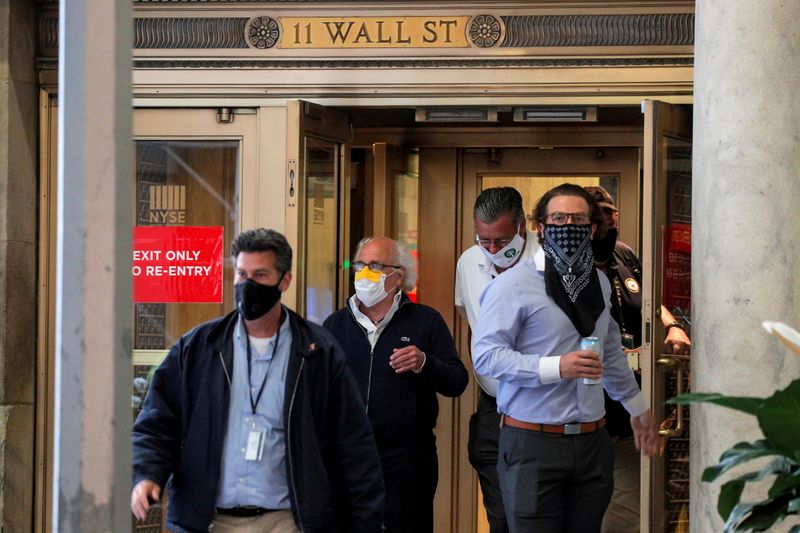By Patturaja Murugaboopathy
(Reuters) - Global investors pumped more money into debt funds and shed holdings of equity funds in October, data from funds database Lipper showed, confirming heightened worries over stock valuations in the weeks before the U.S. presidential election.
Data from Refinitiv Lipper showed that global debt funds received an inflow of $49 billion in October, compared with an outflow of $2.6 billion in equity funds.
Stock markets have rallied tentatively this week as markets await the results of the Nov. 3 elections. Early indications show Democrat Joe Biden closer to the presidency than incumbent Donald Trump and for Congress to stay divided.
Graphic: Flows into global funds - https://fingfx.thomsonreuters.com/gfx/mkt/bdwvkjxdepm/Flows%20into%20global%20funds.jpg
"In the face of potential risk events, such as the upcoming US election and evolving second wave of COVID infections, we believe there was an element of profit-taking in the equity market," said Gautam Khanna, senior portfolio manager at Insight Investment.
"Investors took the opportunity to move up the capital structure from equity into lower-volatility corporate credit and government assets."
The surge in inflows in bond funds was also due to a rise in U.S. interest rates as yields climbed to a four-month high in the last month, analysts said.
Global equities have rallied since March, bolstered by government stimulus measures and hopes for a vaccine. But that surge in shares lifted the MSCI World index's (MIWO00000PUS) forward price-to-earnings ratio to 18.3 at the end of October, much above the 10-year average of 14.4.
Graphic: MSCI World Index's forward 12-month PE - https://fingfx.thomsonreuters.com/gfx/mkt/jznvnjwkqvl/MSCI%20World%20Index's%20forward%2012-month%20PE.jpg
Apart from equity funds, money market funds also witnessed an outflow of $23 billion last month, after receiving a total inflow of over $1 trillion between March and April this year.
Insight Investment's Khanna said money market funds' assets under management still remain elevated despite the outflows in October.

"This represents excess levels of cash sitting on the sidelines, perhaps out of caution," he said.